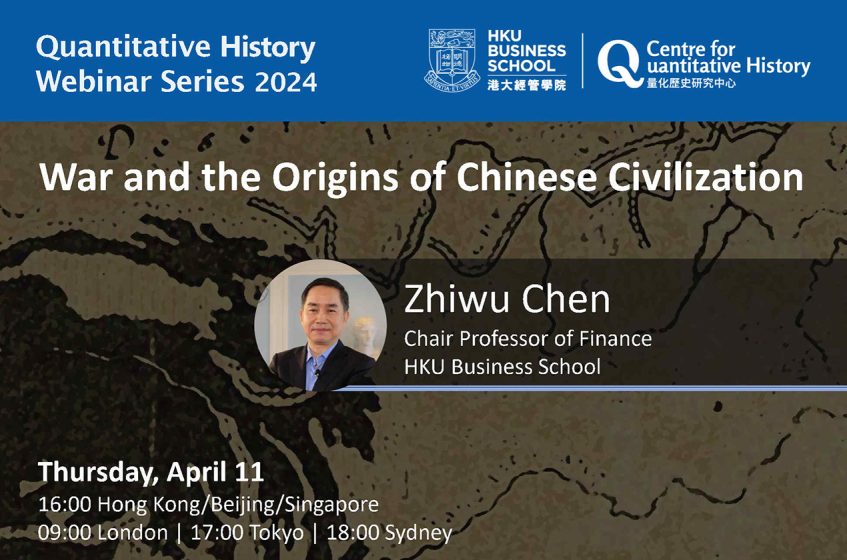
War and the Origins of Chinese Civilization
War and the Origins of Chinese Civilization
Archaeological discoveries since 1921 have established that complex societies, as represented by densely-populated walled cities, first arose in North China, not in the South, triggering the development of Chinese civilization. But it remains an open question as to what made the early cradles of civilization emerge. To answer this, Zhiwu Chen of HKU Business School and his team divide China’s landmass into 1,004 grid-cells of 100×100 km, containing 32,946 archaeological sites, 838 walled cities, 157,050 excavated graves and 53,780 military burial goods from both the Neolithic (8000 – 1700 BCE) and the Eastern Zhou (770 – 221 BCE). First, using their large archaeological database, they find that during both the Neolithic and the Late Neolithic (3000 – 1700 BCE), cells with lower terrain ruggedness had both more weaponry objects buried in the excavated graves and more walled cities. To the extent that warfare must have figured heavily in human lives in order for the locals to care so much as to carrying weapons into their graves, war threats and the early cradles of civilization must have been linked as weaponry grave goods have mostly been discovered in flatter regions along the Yellow and the Yangtze River valleys. Since no historical data on military conflicts is available for the periods prior to 770 BCE, their analysis then focuses on the Eastern Zhou, for which they find cells with flatter terrains to have had significantly more wars, which caused these cells to form more fortified cities. During this Quantitative History Webinar, Zhiwu Chen will explain how their quantitative evidence indicates that warfare played a significant role in the formation of Chinese civilization. The process began in the North, particularly in the alluvial plains, where the flat terrain made the local populations more vulnerable to war threats. Consequently, they engaged in extensive defensive fortification.
Zhiwu’s co-authors: Peter Turchin (Complexity Science Hub Vienna) and Wanda Wang (HKU Business School)
Discussant: Frank Shuo Chen, Professor of Economics, Fudan University
Live on Zoom on Thursday, April 11, 2024
16:00 Hong Kong/Beijing/Singapore
09:00 London | 17:00 Tokyo | 18:00 Sydney | Click here to view your local time
The Quantitative History (QH) Webinar Series aims to provide researchers, teachers, and students with an online intellectual platform to keep up to date with the latest research in the field, promoting the dissemination of research findings and interdisciplinary use of quantitative methods in historical research. The QH Webinar Series, now entering its fourth year, is co-organized by Centre for Quantitative History at the HKU Business School and International Society for Quantitative History in partnership with Hong Kong Institute for the Humanities and Social Sciences. The Series is now substantially supported by the Areas of Excellence (AoE) Scheme from the Research Grants Council of the Hong Kong Special Administrative Region, China (Project No. [AoE/B-704/22-R]). 量化歷史網上講座系列由香港大學陳志武和馬馳騁教授聯合發起,旨在介紹前沿量化歷史研究成果、促進同仁交流,推廣量化方法在歷史研究中的應用。本系列講座由香港大學經管學院量化歷史研究中心和國際量化歷史學會承辦,及香港人文社會研究所全力支持。從2023年開始,系列得到中國香港特別行政區研究資助局卓越學科領域計劃的重要資助 (項目編號[AoE/B-704/22-R])。
Conveners:
Zhiwu Chen
Chicheng Ma







